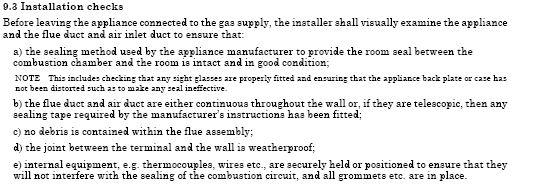C
Charles Edgington
Good evening.
I hope this is the right place for some advice.
I’ve been having issues with damp and air quality in the house. So much so when the boiler was running (before it got turned off by Cadent) the bedroom above the boiler smelt really bad and the air was putrid like stale air.
It caused health issues as the boiler is in the kitchen below the main bedroom.
so much so I contacted the guy who installed it twice but he postponed yet again so I called the gas service.
They switched it off.
I have checked the flue and there seem to be two issues that stand out to me.
1 - there is no making good of the brickwork outside or the plaster inside. You can feel cold air above the boiler in the kitchen. Also regular brick dust on the tiles inside the kitchen below the boiler. It looks like rain could seep in between the rubber gaiter and the tube into the hole.
Whilst it is an old house it has a small air cavity in the brickwork for ventilation all round. So water could get into it.
2 - the flue is about 2.5 m high from the ground outside and the gases impinge on the rendering so much so there is a hole in it now and the waste pipe paint is peeling off.
Also there is damp in the attic directly in line with the location of the boiler and flue below.
Should the hole be sealed with mortar or the brickwork where the bricks have had the face chipped off be replaced?
Should the inside be plastered or filled?
Also regarding the render and pipe work I looked at the regulations or guidelines and it says that care should be taken about areas of the outside that may be damaged by frequent wetting. The vapour is quite warm though so could it cause damage? Someone suggested it should be vented to the roofline as shown in the images in the building regulations.
Can anyone advise?
Last edited by a moderator:


